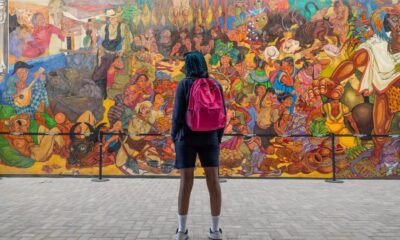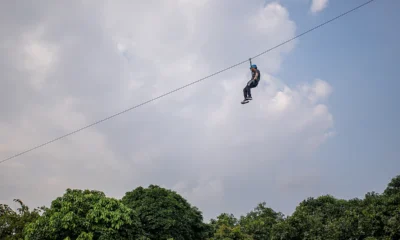Travel Apps & Platforms
South Africa Online Travel Market 2025–2033: Trends & Future Outlook
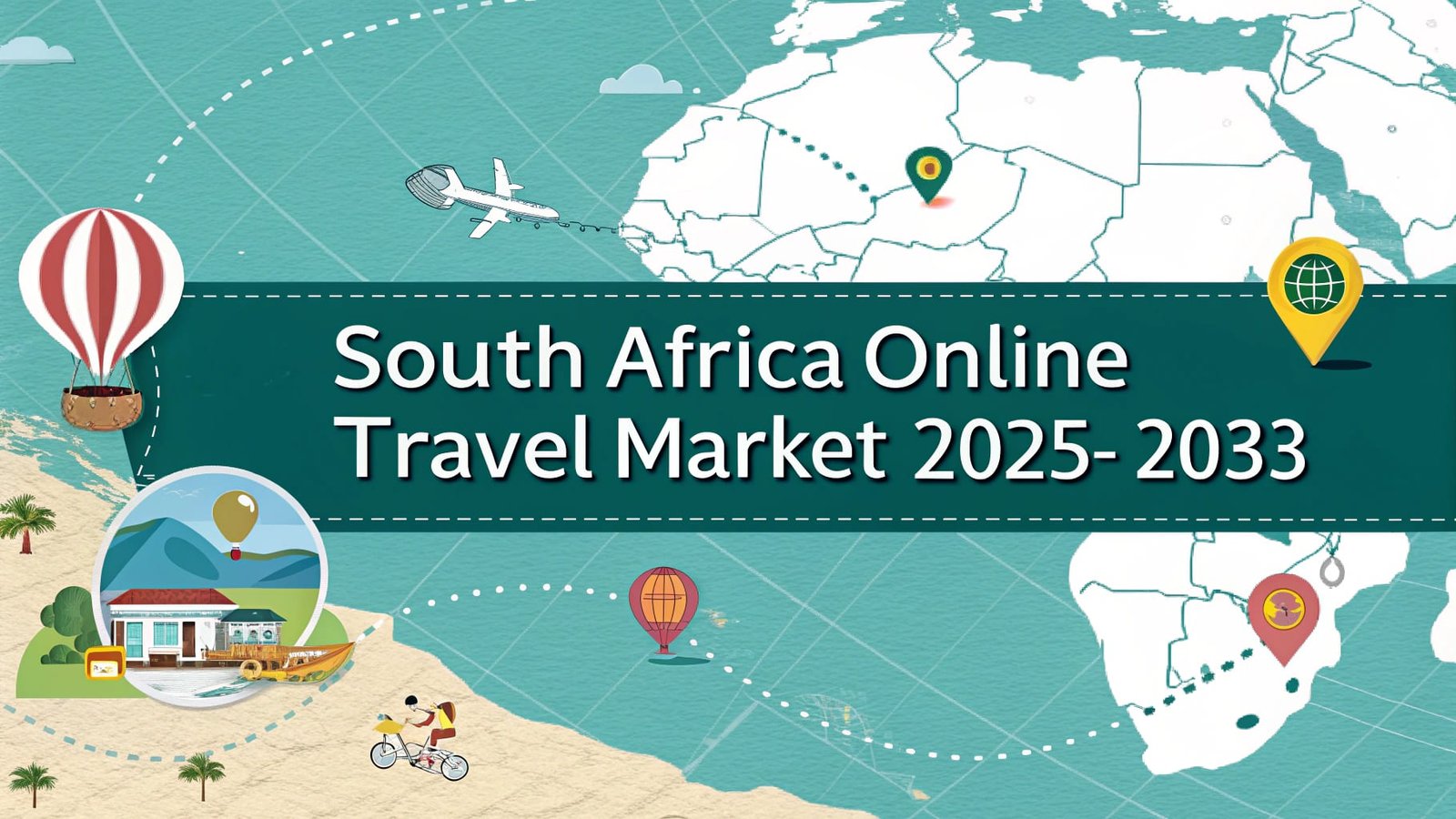
Industry Overview
The South Africa online travel market encompasses all travel-related services booked and purchased through digital channels, including websites, mobile applications, and other online platforms. This includes everything from flights and accommodation to car rentals, tour packages, and activity bookings. The convenience, accessibility, and competitive pricing offered by online platforms have fundamentally reshaped consumer behavior, moving away from traditional brick-and-mortar travel agencies.
Market Size & Growth
The South Africa online travel market has experienced impressive expansion, reflecting the increasing digital penetration and evolving preferences of both domestic and international travelers. According to the IMARC Group, the South Africa online travel market size reached USD 2,541.84 Million in 2024. The market is projected to reach USD 5,959.28 Million by 2033, exhibiting a growth rate (CAGR) of 9.93% during 2025-2033. This robust growth underscores the immense potential and continued upward trajectory of online travel in the country.
Key Trends in the South Africa Online Travel Market
The South African online travel landscape is constantly evolving, driven by technological advancements and shifting consumer demands. Several key trends are shaping its trajectory:
- Mobile-First Dominance: The proliferation of smartphones and increasing internet accessibility has cemented mobile devices as the primary channel for online travel bookings. Consumers are increasingly using travel apps for everything from research and booking to real-time itinerary management and in-destination services. This necessitates optimized, user-friendly mobile interfaces and app development from online travel providers.
- Personalization and Customization: Travelers are no longer content with generic packages. There’s a growing demand for personalized experiences tailored to individual preferences, interests, and budgets. Online platforms are leveraging data analytics to offer customized recommendations for accommodation, activities, and routes, creating more unique and memorable trips.
- Rise of Sustainable and Eco-Conscious Travel: A significant global trend, sustainable tourism is gaining traction in South Africa. Travelers are increasingly seeking out eco-friendly accommodations, responsible tour operators, and experiences that minimize their environmental impact and contribute positively to local communities. Online platforms are beginning to integrate sustainability filters and highlight green credentials to cater to this growing segment.
- Experiential Travel Over Sightseeing: Modern travelers prioritize immersive experiences and authentic cultural encounters over simply visiting landmarks. This trend fuels demand for local tours, unique activities, and off-the-beaten-path destinations, which online platforms are well-positioned to showcase and facilitate bookings for.
- Increased Demand for Flexible and Last-Minute Bookings: The dynamic nature of travel, sometimes influenced by unpredictable events, has led to a greater need for flexibility in bookings. Online platforms offering free cancellations, rebooking options, and last-minute deals are gaining favor.
- Growing Influence of Social Media and User-Generated Content: Social media platforms are becoming crucial for travel inspiration, research, and sharing experiences. User reviews, photos, and videos significantly influence booking decisions, making a strong online reputation and engaging social media presence vital for travel businesses.
Get Your Free “South Africa Online Travel Market” Sample PDF Report Now!
Growth Drivers
Several factors are propelling the growth of the South Africa online travel market:
- Increasing Internet Penetration and Smartphone Adoption: The continuous expansion of internet access, particularly mobile broadband, across South Africa is a fundamental driver. As more people gain access to the internet and own smartphones, the pool of potential online travelers naturally expands.
- Rising Disposable Incomes: A growing middle class in South Africa, coupled with increasing disposable incomes, translates to greater spending power on leisure and travel. This demographic is more inclined to embrace the convenience and options offered by online travel platforms.
- Government Initiatives to Promote Tourism: The South African government actively promotes tourism as a key economic driver. Initiatives aimed at improving infrastructure, simplifying visa processes, and marketing the country as a desirable destination directly stimulate travel demand, much of which is captured by online channels.
- Convenience and Accessibility of Online Booking Platforms: The sheer ease of comparing prices, reading reviews, and booking various travel components from the comfort of one’s home or on the go is a major draw. Online platforms offer a 24/7 service, eliminating the need for physical visits to travel agencies.
- Competitive Pricing and Deals: The highly competitive online travel market often leads to more attractive pricing, discounts, and package deals compared to traditional booking methods. This price transparency empowers consumers to find the best value for their money.
- Technological Advancements: Continuous innovation in online travel technology, including improved search algorithms, secure payment gateways, and intuitive user interfaces, enhances the overall booking experience and encourages wider adoption.
Get Instant Access to the Full Report with a Special Discount!
AI Impact on South Africa Online Travel Market
Artificial Intelligence (AI) is rapidly transforming the online travel sector in South Africa, enhancing efficiency, personalization, and customer satisfaction. Its impact is multifaceted:
- Personalized Recommendations: AI algorithms analyze vast amounts of user data, including past searches, booking history, and preferences, to deliver highly personalized travel recommendations. This could involve suggesting specific hotels, flights, activities, or even entire itineraries tailored to individual tastes.
- AI-Powered Chatbots and Virtual Assistants: Chatbots and virtual assistants are increasingly being used to provide instant 24/7 customer support, answer frequently asked questions, assist with bookings, and resolve minor issues. This improves customer service efficiency and reduces the need for human intervention in routine queries.
- Dynamic Pricing and Revenue Optimization: AI enables travel companies to implement dynamic pricing strategies, adjusting prices in real-time based on demand, seasonality, competitor pricing, and other market factors. This optimizes revenue for providers and can offer competitive deals to consumers.
- Fraud Detection and Security: AI-powered systems are crucial in enhancing security measures for online transactions, detecting fraudulent activities, and protecting sensitive customer data, thereby building trust in online booking platforms.
- Predictive Analytics: AI can analyze historical data to predict travel trends, peak seasons, and popular destinations. This allows travel businesses to optimize their inventory, marketing campaigns, and staffing levels more effectively.
- Immersive Experiences (VR/AR Integration): While still nascent, AI combined with Virtual Reality (VR) and Augmented Reality (AR) is beginning to offer immersive previews of destinations and accommodations. Travelers can virtually explore hotels, tourist attractions, or even entire cities before making a booking, enhancing decision-making and excitement.
- Enhanced Operational Efficiency: Beyond customer-facing applications, AI is used for back-end operations such as workforce management, inventory optimization, and automated administrative tasks, leading to greater efficiency for travel providers.
Segment Analysis
The South Africa online travel market can be segmented based on various factors, including service type, mode of booking, and traveler type.
By Service Type:
Transportation Booking: This segment typically includes flights, bus tickets, train tickets, and car rentals. Air travel dominates this segment, with online travel agencies (OTAs) and airline direct websites being popular booking channels.
Accommodation Booking: This segment covers hotels, guesthouses, self-catering units, and alternative accommodations like Airbnb. OTAs like Booking.com and Airbnb have a strong presence, alongside direct hotel websites. Accommodation booking is often cited as a high-growth area due to the increasing preference for diverse lodging options.
Vacation Packages: These bundled offerings often include flights, accommodation, and sometimes activities or transfers. Online travel agencies and tour operators leverage their platforms to create and market these packages, catering to travelers seeking convenience and value.
Activities & Tours: The booking of local experiences, day trips, safaris, and other tourist activities through online platforms is a growing segment, driven by the shift towards experiential travel. Platforms like Viator and GetYourGuide are gaining traction.
By Mode of Booking:
Online Travel Agencies (OTAs): These platforms (e.g., Travelstart, Expedia, Booking.com) act as intermediaries, aggregating various travel services from different providers. They offer a wide range of options and competitive pricing, making them a popular choice.
Direct Travel Suppliers: This includes airline websites, hotel chains’ official websites, and direct tour operator platforms. Many travelers prefer booking directly with suppliers for specific deals, loyalty programs, or more control over their bookings.
By Traveler Type:
Leisure Travelers: This largest segment includes individuals and families traveling for holidays, recreation, and personal enjoyment. Their bookings are often driven by price, experiences, and convenience.
Business Travelers: This segment comprises individuals traveling for work-related purposes. Their bookings often prioritize efficiency, flexibility, and corporate rates. Online booking tools (OBTs) are increasingly used by corporations for managing business travel.
Group Travelers: This segment caters to groups, whether for leisure, corporate events, or educational tours. Online platforms facilitate group bookings and often offer specialized tools for coordination.
Future Opportunities
The South Africa online travel market is ripe with future opportunities for innovation and growth:
Niche Travel Segments: Specializing in niche travel segments such as adventure tourism, wellness retreats, cultural immersion tours, eco-tourism, or solo travel can unlock significant potential. Travelers are increasingly seeking highly tailored and specific experiences.
Hyper-Personalization with Advanced AI: Moving beyond basic recommendations, the future holds hyper-personalization powered by more sophisticated AI, offering truly bespoke itineraries and services based on deep individual insights.
Integration of Blockchain for Transparency and Security: Blockchain technology could revolutionize online travel by enhancing transparency in pricing, securing transactions, and creating immutable records of bookings, fostering greater trust.
Expansion into Underserved Regions and Communities: While major urban centers are well-covered, there’s an opportunity to extend online travel services to more remote areas, empowering local businesses and offering unique, authentic experiences to travelers.
Seamless Multi-Modal Travel Solutions: Developing platforms that offer seamless integration of various transport modes (flights, trains, buses, car rentals) within a single booking flow, along with last-mile solutions, will enhance convenience.
Voice Search and Conversational AI: As voice assistants become more prevalent, optimizing online travel platforms for voice search and developing conversational AI for intuitive booking processes will be crucial.
Post-Booking Engagement and In-Destination Services: Opportunities exist to enhance the traveler experience beyond booking by offering in-destination support, real-time local information, personalized recommendations for dining or attractions, and seamless booking of local activities.
Strategic Partnerships and Collaborations: Forming partnerships between OTAs, local tour operators, accommodation providers, and technology companies can create more comprehensive offerings and enhance market reach.
Regional Analysis
While the South Africa online travel market operates nationally, regional nuances play a role in travel patterns and online penetration:
Gauteng: As the economic hub, Gauteng sees significant business travel and a high concentration of tech-savvy users, driving robust online booking for flights, accommodation, and car rentals. Johannesburg and Pretoria are key centers.
Western Cape: A premier tourist destination, the Western Cape (especially Cape Town) attracts a large volume of international and domestic leisure travelers. Online platforms are crucial for showcasing its diverse offerings, from wine routes to coastal attractions.
KwaZulu-Natal: With its popular coastline and cultural sites, KwaZulu-Natal relies on online channels to attract both domestic holidaymakers and international visitors. Durban is a major online travel hub in the region.
Eastern Cape, Limpopo, Mpumalanga, etc.: These provinces, known for their natural beauty and wildlife (e.g., Kruger National Park in Mpumalanga), are increasingly leveraging online platforms to promote eco-tourism and adventure travel, drawing both domestic and international tourists seeking unique experiences.
Digital Divide: While online penetration is high in urban centers, the digital divide still exists in more rural and remote areas. Bridging this gap through improved infrastructure and digital literacy programs will be crucial for inclusive growth of the online travel market across all regions.
Conclusion
The South Africa online travel market is a dynamic and rapidly expanding sector, poised for continued growth in the coming years. Driven by increasing internet and smartphone penetration, a burgeoning middle class, and proactive government support for tourism, the market is transforming how South Africans and international visitors plan and experience their journeys. Key trends like mobile-first strategies, personalization, and sustainable travel are shaping its evolution, while the pervasive influence of Artificial Intelligence is revolutionizing customer experience, operational efficiency, and revenue generation. With ample future opportunities in niche markets, advanced technological integration, and expansion into underserved regions, the South Africa online travel market presents a compelling landscape for both established players and innovative newcomers. As digital convenience becomes an ingrained expectation, the industry’s ability to adapt, innovate, and provide seamless, personalized, and responsible travel experiences will be paramount to its long-term success.
FAQs
1. What are the primary factors driving the growth of the South Africa online travel market?
The growth is primarily driven by increasing internet penetration and smartphone adoption, rising disposable incomes, government initiatives to promote tourism, the inherent convenience and accessibility of online booking platforms, competitive pricing, and continuous technological advancements.
2. How is Artificial Intelligence (AI) impacting the South Africa online travel market?
AI is significantly impacting the market through personalized travel recommendations, improved customer service via chatbots, dynamic pricing and revenue optimization, enhanced fraud detection, predictive analytics for demand forecasting, and the potential for immersive virtual/augmented reality experiences.
3. What are the major segments within the South Africa online travel market?
The market is broadly segmented by service type (transportation booking, accommodation booking, vacation packages, activities & tours), mode of booking (Online Travel Agencies (OTAs), Direct Travel Suppliers), and traveler type (leisure, business, group).
4. What future opportunities exist in the South Africa online travel market?
Future opportunities lie in specializing in niche travel segments, further developing hyper-personalization with advanced AI, integrating blockchain for transparency, expanding services to underserved rural areas, offering seamless multi-modal travel solutions, and leveraging voice search and conversational AI for booking.
Travel Apps & Platforms
Dallas to Chicago Road Trip: 6 Crazy Stops You Can’t Miss

Craving a classic American road trip packed with quirky roadside attractions, historic landmarks, and unforgettable photo ops? Buckle up for an unforgettable journey from Dallas to Chicago, where every stop tells a story and Route 66 charm meets big city energy. Whether you’re chasing nostalgia, exploring hidden gems, or just looking for a scenic way to get from Texas to the Windy City, this guide covers the can’t-miss stops along the way. From towering fiberglass giants and movie inspired pit stops to awe-inspiring museums and iconic monuments, we’ve mapped out the perfect itinerary to turn your long drive into an adventure!
Cars on the Route – Galena, KS
This quirky roadside stop is a must-see for fans of Disney Pixar’s Cars. Galena served as a major inspiration for the movie’s fictional town of Radiator Springs, and here you’ll find life sized versions of Tow Mater, Lightning McQueen, and Sheriff. You can even see the original rusty old truck that inspired Mater himself. The gas station serves up delicious diner classics like burgers, fries, and milkshakes. There’s no need to book in advance, and parking is plentiful. Be sure to chat with the friendly staff and locals, as they’re full of great stories and trivia about Galena’s movie magic and Route 66 history.
Wonders of Wildlife Museum & Aquarium – Springfield, MO
A true highlight of Springfield, the Wonders of Wildlife Museum & Aquarium is one of the largest and most immersive wildlife attractions in the world. With over 1.5 miles of exhibits, this stop could easily take up most of your day, so wear comfy shoes and plan ahead. Booking tickets online is highly recommended, especially during peak travel times. The museum pays tribute to explorers, conservationists, and the natural beauty of the U.S., and it’s fully wheelchair accessible. Springfield itself is full of Route 66 charm and serves as the highway’s official birthplace. If time allows, consider checking out Fantastic Caverns or taking a detour to nearby Branson.
S&T Stonehenge Replica – Rolla, MO
Tucked away on the Missouri University of Science and Technology campus is an unexpected roadside gem: a scaled replica of England’s Stonehenge. This structure was carved using high-pressure water jets by students and is impressively accurate, even functioning as a clock within 15 seconds. The best way to access it is by parking near the campus observatory and taking a short walk. Dedicated on the summer solstice in 1984 by a Druid priest, the replica adds a mystical and nerdy charm to any Route 66 road trip. It’s a quick stop but makes for a unique photo and a fun fact for your travel journal. While in the area, quirky attractions like Uranus Sideshow Museum and the Route 66 Rocker are worth checking out.
Gateway Arch National Park – St. Louis, MO
No road trip through Missouri is complete without a visit to the iconic Gateway Arch. Take the tram ride to the top for stunning views of the Mississippi River and downtown St. Louis, but make sure to book your tickets in advance as they often sell out. Beneath the Arch, a free museum offers immersive exhibits covering over two centuries of history, from Native American culture to westward expansion. There’s also a riverboat cruise available for those looking to soak in the skyline from the water. Security is tight here, so pack lightly and allow extra time for screening. Don’t forget to explore nearby landmarks like the Old Courthouse or venture across the river to Cahokia Mounds.
Bunyon With a Hotdog – Atlanta, IL
Standing 19 feet tall and holding a giant hotdog, this fiberglass Paul Bunyon statue is a fun and funky photo stop. Originally built for a restaurant in Cicero, Illinois, the statue was moved to Atlanta in 2003 to preserve its place in Route 66 lore. It’s located at 103 SW Arch St and is easy to spot from the road. In town, you can explore other offbeat gems like the American Giants Museum, which delves into the history of Muffler Men. For a stretch of the legs, walk “Memory Lane,” a preserved mile of original Route 66 pavement lined with retro signs. This stop captures the playful spirit of roadside Americana.
Illinois Route 66 Hall of Fame and Museum – Pontiac, IL
Route 66 history comes alive in Pontiac, home to one of the most comprehensive Route 66 museums in the country. Inside, you’ll find thousands of artifacts, plus Bob Waldmire’s famous VW bus and van, which inspired the character Fillmore in Cars. Admission is free, and the museum is open daily, with seasonal hours and full accessibility. Snap a selfie in front of the massive Route 66 shield mural out back before wandering the town’s footprint trails that guide you to murals, local museums, and historical sites. If you’re hungry, the Old Log Cabin offers hearty comfort food, or stop at Wally’s for a modern rest stop experience. Pontiac also houses other niche museums, making it an ideal final stop before hitting the road to Chicago.
Final Thoughts: Your Road to Remember
From the small-town quirks of Kansas to the soaring skyline of Chicago, the road from Dallas is more than just a drive, it’s a journey through time, culture, and Americana at its best. Each stop along the way offers a chance to stretch your legs, learn something new, and collect stories that will stay with you long after the trip ends. So whether you’re a seasoned road warrior or a first-time traveler chasing the thrill of the open highway, don’t overthink it—just go. Pack your curiosity, follow the rhythm of the road, and let this iconic route surprise you. The best memories often start with a full tank of gas and a simple plan to explore.
Travel Apps & Platforms
Houston to New Orleans: Quirky Stops & Southern Charm
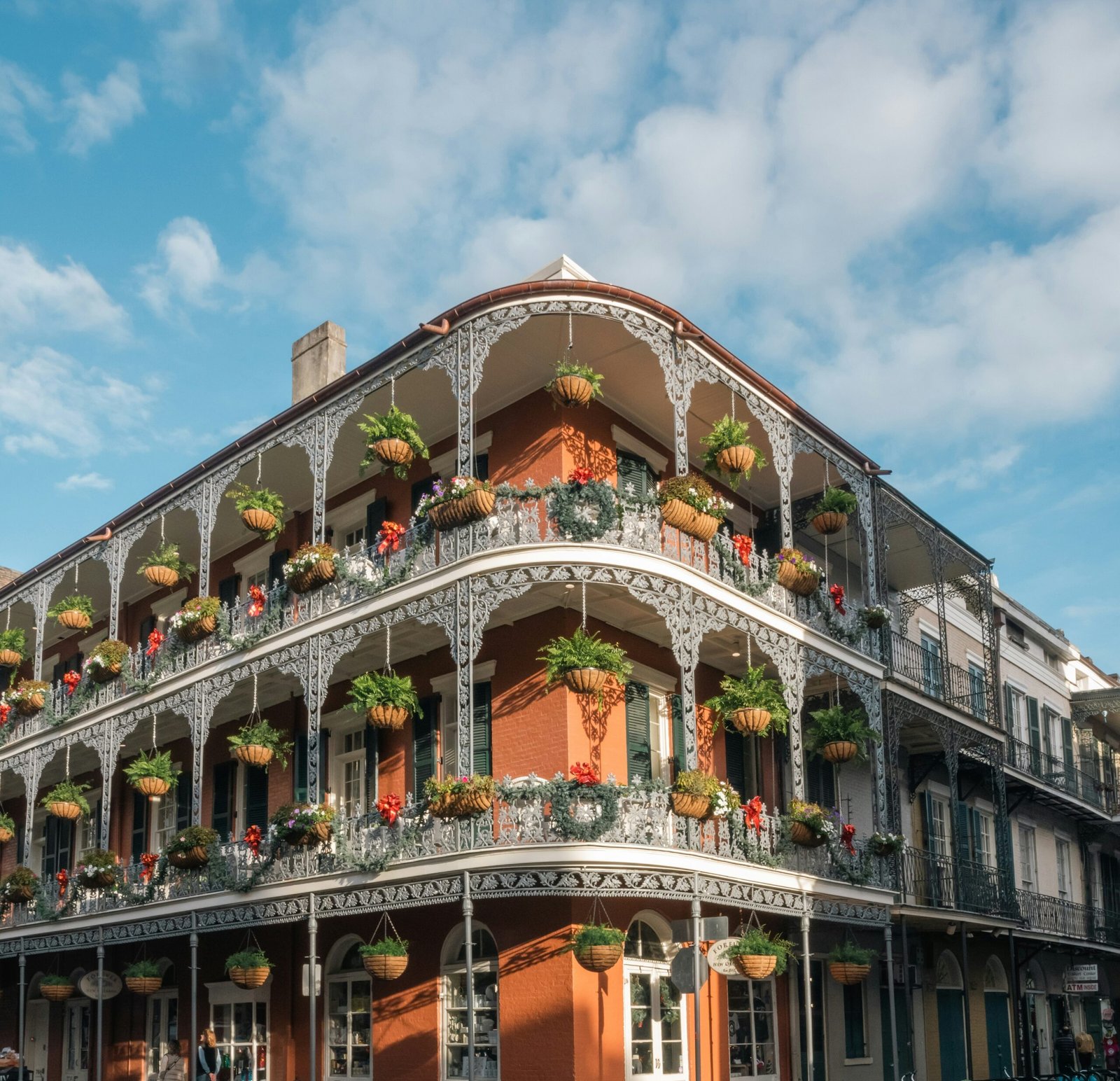
There’s something electric about the open road between Houston and New Orleans—a stretch of highway that winds through bayous, small towns, and cultural gems waiting to be discovered. This isn’t just a drive, it’s a journey through roadside Americana, Cajun country, and deep Southern history, with unexpected stops that turn a simple route into a true adventure. Whether you’re chasing quirky photo ops, scenic parks, or legendary local eats, this road trip delivers more than just miles. Take a look at four must-see stops along the way, each packed with character, charm, and a story worth pulling over for. Buckle up and let’s hit the road, as there’s plenty to explore between Space City and the Big Easy.
Muffler Man – Beaumont, TX
A nostalgic nod to Americana, the Muffler Man in Beaumont stands tall as a vintage roadside icon. This particular statue is known as a “Snerd” and is unique for its red shirt, a departure from others ordered by Ken Johnson of Ken’s Muffler Shops. Located at 830 South 11th Street, it’s easy to access and free to visit, making it a quick and quirky photo stop. Though there’s no official tour or signage, visitors can spot the original International Fiberglass logo still visible on the giant’s leg. It’s a fun stop for fans of retro kitsch and roadside oddities, and a reminder of mid-century advertising creativity. If you’re heading east, it’s also a good point to stretch your legs before the Louisiana state line.
Millennium Park – Lake Charles, LA
Millennium Park is a beautiful and family-friendly destination nestled along the lakefront in Lake Charles. Its pirate ship, oil derrick, and saw mill play structures reflect the region’s cultural and industrial history, while the Crying Eagles Nest Tree House pays tribute to local Native American heritage. Visit in the early morning or at sunset to enjoy cooler temperatures and serene lake views—plus fewer crowds. With paved walkways, safety surveillance, and nearby access via walking or public transportation, it’s an easy and relaxing stop for travelers. The park was lovingly rebuilt by over 5,000 volunteers after a fire in 2011, adding to its local significance. Don’t miss a visit to nearby The Bekery for a coffee and treat before heading back on the road.
Frog Racing – Rayne, LA
Rayne lives up to its title as the “Frog Capital of the World” with its lively Frog Festival, a quirky event featuring frog races, live music, and frog leg cook-offs. While the main festival happens in May, the Frog Derby is a highlight in early September, so be sure to check the official event site for the latest dates. Even outside festival season, the town charms visitors with its colorful frog murals and unique attractions. A walk through downtown reveals a blend of Cajun culture, public art, and small-town charm. Grab a bite at Chef Roy’s Frog City Café or Jett’s Crawfish Drive-Thru if you’re craving local flavor. Don’t forget to stop by the Rayne Chamber of Commerce gift shop for a frog-themed souvenir.
LSU Rural Life Museum and Windrush Gardens – Baton Rouge, LA
Step back in time at the LSU Rural Life Museum, where 32 preserved buildings showcase life in rural Louisiana during the 18th and 19th centuries. This immersive outdoor museum is split into distinct regions that represent different cultural influences and ways of life across the state. Just next door, Windrush Gardens offers a peaceful stroll through a 25-acre landscape filled with live oaks, camellias, and sculptures. Plan for a few hours here—there’s a lot to explore, and the gardens are especially stunning in spring or late summer. Admission is reasonably priced, and audio tour wands help bring the exhibits to life. For garden lovers, the LSU AgCenter Botanic Gardens and its famed Rose and Tropical Gardens are also worth a visit while in the area.
Rolling Into the Big Easy: A Journey Worth the Drive
From quirky roadside landmarks to vibrant small-town traditions and lush Southern landscapes, the road from Houston to New Orleans is rich with unexpected wonders. This isn’t just a drive, it’s an exploration of the cultures, stories, and flavors that define the Gulf Coast. Each stop adds its own character to the journey, making the miles feel more like memories in the making. As you plan your route, remember to stay open to the surprises along the way, they’re often the best part. So fill up the tank, cue up your favorite playlist, and get ready to discover how unforgettable the ride to the Big Easy can truly be.
Travel Apps & Platforms
How to Use Sabre Flight Search API for Real-Time Booking
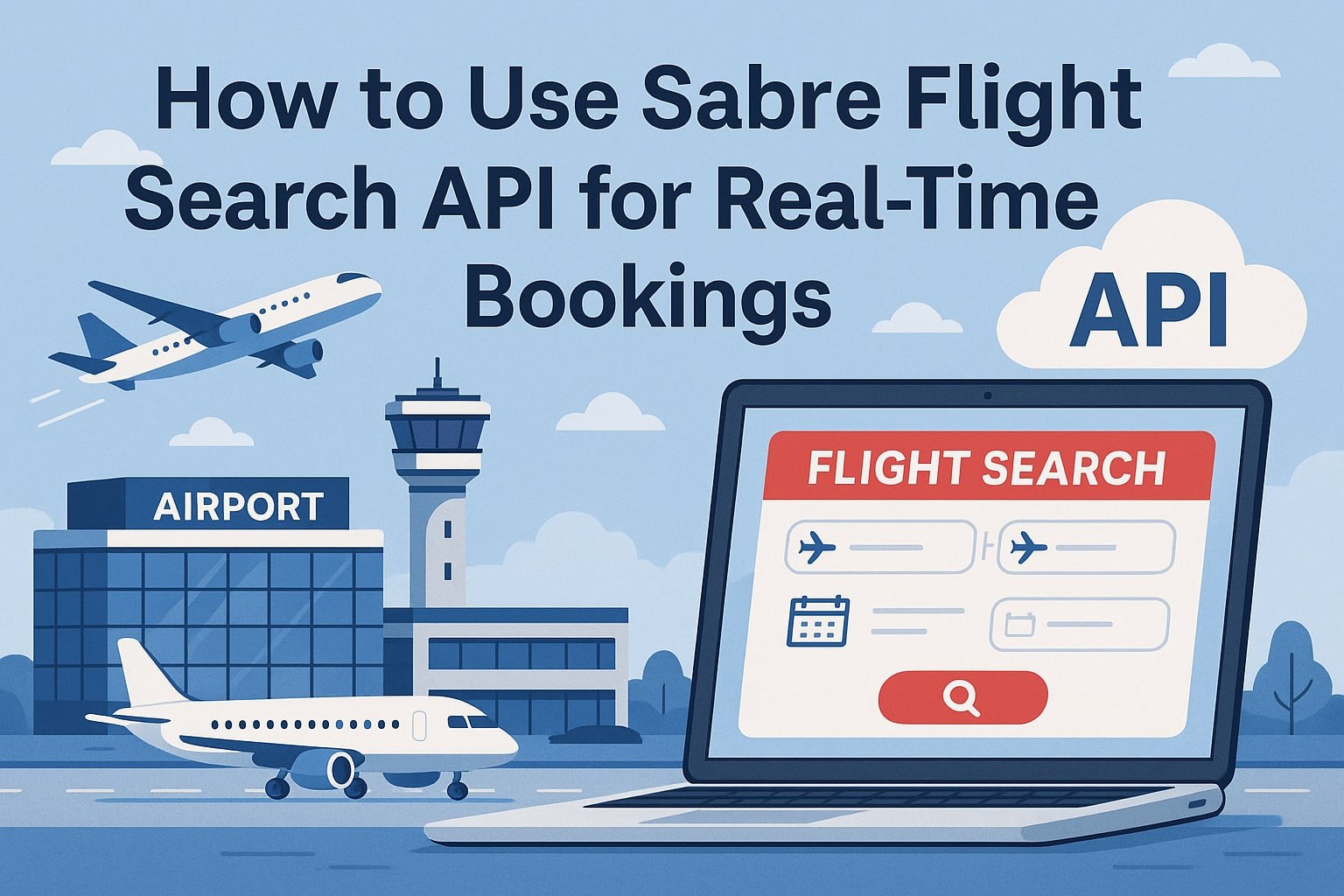
In today’s digital travel world, people expect instant access to flight options no delays, no outdated information. To meet this demand, travel platforms need something powerful working behind the scenes. That’s where the Sabre Flight Search API comes in.
Sabre is one of the leading names in travel technology. Their flight search API allows travel websites and apps to offer real-time flight data, accurate pricing, and seamless booking experiences. A proper Sabre API integration helps businesses deliver these capabilities effortlessly, enhancing both performance and user satisfaction.
Step-by-Step Guide to Using the Sabre Flight Search API
Step 1: Set Up Your Developer Account
Before you can start using the API, you’ll need to create a free account on Sabre Dev Studio. This is where you’ll access the tools and documentation to build and test your integration.
Once you’ve signed up, you’ll be able to create your own app inside the dashboard this is what unlocks your development access. Think of it as your backstage pass to Sabre’s travel data.
Step 2: Generate API Credentials
After creating your app, Sabre gives you a set of credentials: a client ID and client secret. These act like your app’s username and password for talking to the API.
You’ll also get two important URLs one for testing and one for when you’re ready to go live. These credentials are what you’ll use to authenticate your app securely, so keep them safe.
Step 3: Understand the Endpoint & Parameters
Now that you’re all set up, it’s time to understand what the API needs to do its job. The Sabre Flight Search API works by receiving specific details like where your user is flying from and to, travel dates, number of travelers, and their cabin preferences.
You can also add filters for things like non-stop flights or preferred airlines. This flexibility helps you offer results that match exactly what your customers are looking for.
Step 4: Make a Test API Request
Before going live, you’ll want to test everything using Sabre’s sandbox environment. This lets you send sample requests and see how the API responds all without affecting real bookings.
During testing, you’ll simulate real-world searches and confirm that the API returns correct flight data, prices, and availability. It’s your chance to make sure everything works smoothly before launching to users.
Step 5: Parse and Display Real-Time Results
Once the data starts coming in, your job is to present it clearly to your users. You’ll take the results from the API — like airline names, flight times, prices, and baggage info — and display them in a clean, easy-to-understand format.
Good UI/UX is key here. Travelers love being able to compare prices, filter by their preferences, and find the best deals fast. This is where your platform really shines.
Key Features of Sabre Flight Search API
Real-Time Flight Availability
One of the biggest benefits of using Sabre’s API is that it gives you live flight data. Your users see exactly what’s available at that moment — no outdated schedules or “sold out” surprises.
Multi-Carrier Fare Search
The API can pull in options from multiple airlines at once, even combining them into one trip if needed. Whether it’s a roundtrip on one airline or a mix of carriers for the best deal, Sabre handles it all.
Advanced Filtering Options
Want to show only non-stop flights? Or only flights from a certain airline? The API makes this easy. You can customize search results based on things like:
Number of stops
Travel class (like Economy or Business)
Departure and arrival times
Specific airline preferences
It gives users more control, and that leads to better bookings.
Common Use Cases and Applications
Real-Time Flight Comparison for Travel Websites
If you run a travel website, integrating Sabre’s API means your visitors can search, compare, and book flights without delays. It keeps your platform fast, modern, and competitive.
Mobile Apps for Last-Minute Flight Bookings
People on the go need fast answers. Whether someone’s booking from an airport or looking for a spontaneous getaway, a mobile app using the Sabre API can show real-time flight options and pricing in seconds.
AI-Powered Travel Assistants and Bots
With the rise of AI and chatbots, Sabre’s API is a great fit for conversational travel booking. It lets your chatbot respond with real-time flight options when someone says, “Find me the cheapest flight to London this weekend.”
Conclusion
The Sabre Flight Search API is more than just a technical tool it’s a game-changer for travel platforms that want to deliver fast, accurate, and personalized booking experiences.
With real-time flight data, flexible search filters, and support for multi-airline options, it gives your users everything they need to book smarter. Whether you’re building a travel app, website, or even an AI assistant, integrating this API helps you stay competitive in a fast-changing travel industry.
-

 Brand Stories2 weeks ago
Brand Stories2 weeks agoBloom Hotels: A Modern Vision of Hospitality Redefining Travel
-

 Brand Stories1 week ago
Brand Stories1 week agoCheQin.ai sets a new standard for hotel booking with its AI capabilities: empowering travellers to bargain, choose the best, and book with clarity.
-

 Destinations & Things To Do2 weeks ago
Destinations & Things To Do2 weeks agoUntouched Destinations: Stunning Hidden Gems You Must Visit
-

 Destinations & Things To Do1 week ago
Destinations & Things To Do1 week agoThis Hidden Beach in India Glows at Night-But Only in One Secret Season
-

 AI in Travel2 weeks ago
AI in Travel2 weeks agoAI Travel Revolution: Must-Have Guide to the Best Experience
-

 Brand Stories1 month ago
Brand Stories1 month agoVoice AI Startup ElevenLabs Plans to Add Hubs Around the World
-

 Brand Stories3 weeks ago
Brand Stories3 weeks agoHow Elon Musk’s rogue Grok chatbot became a cautionary AI tale
-

 Asia Travel Pulse1 month ago
Asia Travel Pulse1 month agoLooking For Adventure In Asia? Here Are 7 Epic Destinations You Need To Experience At Least Once – Zee News
-

 AI in Travel1 month ago
AI in Travel1 month ago‘Will AI take my job?’ A trip to a Beijing fortune-telling bar to see what lies ahead | China
-

 Brand Stories2 weeks ago
Brand Stories2 weeks agoContactless Hospitality: Why Remote Management Technology Is Key to Seamless Guest Experiences



